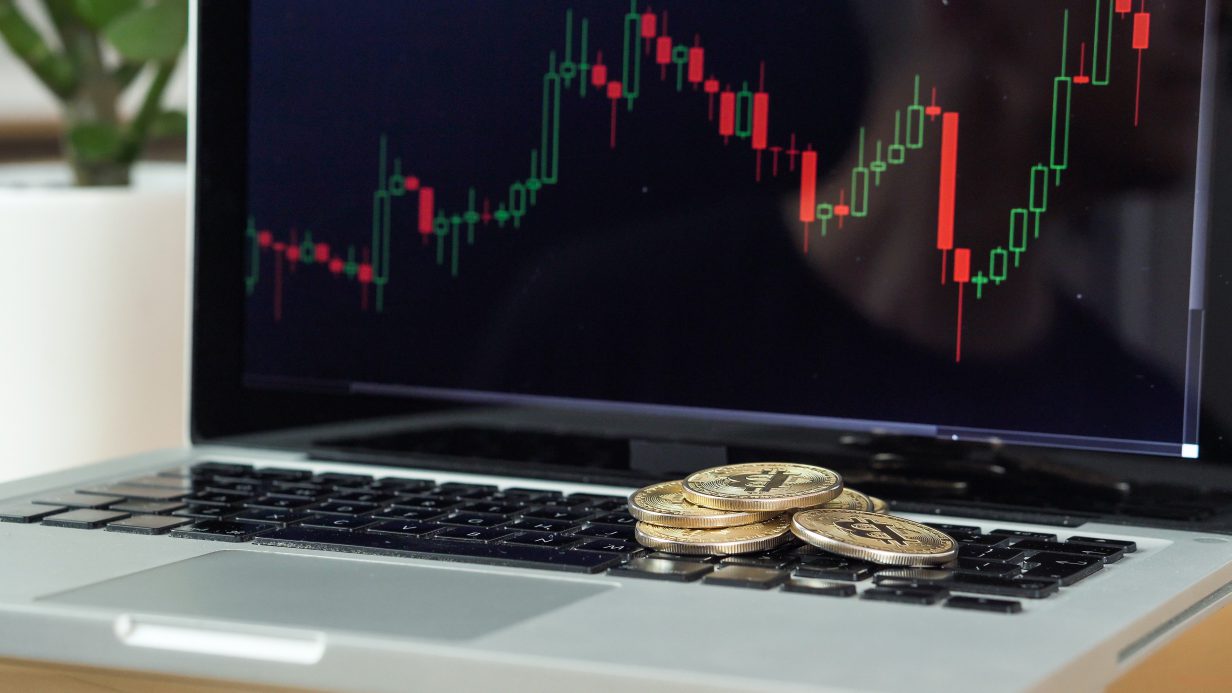
2.4 What is a Decentralised Exchange (DEX)?
Another day, another Blockchain related acronym, well so it seems. ‘DEX’ is the latest Blockchain acronym that you need to add to your ever-growing acronym glossary. Luckily for everyone involved this is the first acronym that is extremely easy to breakdown and explain. DEX simply stands for Decentralised Exchange and our aim in this blog is to make sure all our readers build an all-round understanding of what a DEX is.
What is a Decentralised Exchange?
Let’s start by giving you a plain, simple explanation that is easy to comprehend. A Decentralised Exchange is the process of two users trading without relying on any third-party services (EG Private banks) holding the funds. Trading using DEX will occur directly between the two users (peer to peer), using an automated process.
Removing the need for Privately Owned Banks
Throughout our content we regularly refer back to Bitcoin as our example, but it was the first blockchain based cryptocurrency and it made a big impact in this market. We have mentioned previously that Bitcoin was introduced to the world at a time when banks had tarnished the trust the general public had in them. Bitcoin brought the solution of a peer-to-peer system that allows users to transfer values without involving any central authority. Since the network is distributed between individual users and the processing of transactions is the responsibility of all relevant stakeholders, users are securing themselves from censorship, fraud and other crimes that may occur.
Furthermore, by converting to cryptocurrencies you are removing the involvement of Privately-Owned Banks. And lest we forget that it is these privately-owned banks that lend money to governments at interest and create a debt-based economy that amongst other things led us to the 2009 financial crisis. However, Bitcoin and other cryptocurrencies still haven’t answered all our prayers and there are still instances where we trust other third-party services and regularly involve them, especially when processing exchanges.
The Answer Lies with Decentralised Exchanges
To ensure we take it to the full extreme and exchange coins without entrusting any third-party services, we have to turn to Decentralised Exchanges as our solution. Users need to exchange their crypto assets, but security needs to be a priority to make sure you don’t become the next victim of hacking or scams across the cryptocurrency community.To give you an idea of an exchange that have been processed as a malicious act, we want to direct you to the MT. Gox case that created such noise in the cryptocurrency community, there is now this famous term ‘Getting Goxed’ and it us used when you are a victim of such malicious exchange. Without Decentralised Exchanges you are at risk of becoming a victim and consequently finding yourself voluntarily eliminating the excess instruments, declaring bankruptcy or being bailed out by a new investor.

Like anything, there are pros and cons to using Decentralised Exchanges and many people will argue that Centralised Exchanges are still the better option. However, we strongly believe that Centralised Exchanges are all we have known for many years and a lot of people are frightened of change. To make sure our readers are provided with the full story we have finalised this blog post by breaking down the pros and cons of DEX, whilst also shedding some light on Centralised Exchanges. With all this information and understanding, you now have sufficient tools to choose your side between #Decentralised vs #Centralised.
Benefits of Decentralised Exchange
Starting with the positives, below is a list exposing the key benefits of Decentralised Exchanges.
- You don’t have to worry about trusting the security of the transaction or the honesty of any third party because you are in control and you hold the funds in your personal wallet.
- You are protected. Using DEX doesn’t require personal details, unless it involves bank transfer, but even then, only you and the person you are making the exchange with have access to this data.
- You don’t have to worry about any server downtime mid exchange because Blockchain technology is involved, therefore the hosting of the DEX is distributed throughout the individual participants.
Already it is evident that moving to a world where we use DEX is going to bring you as the individual users some extremely important benefits that can’t always be promised with Centralised Exchanges.
Drawbacks of Decentralised Exchange
Now to flip it on its head, because everything does have drawbacks and DEX isn’t any different. We have highlighted the negative points below, to make sure our readers have every piece of relevant information available to them.
- Not all features are currently available, margin trading, lending and stop loss are just a few examples that are currently unavailable on many DEXs and you may only be able to process basic currency exchanges for a predetermined value for the time being.
- It may be a requirement that you are needed online to list an order and process the trade. Bisq is an example of a DEX that requires you to be online and perform actions including signalling a payment was received.
What about using Centralised Exchanges?
Centralised Exchanges are commonly used across the trade market and they are a completely different system, in fact they are a contrast to Decentralised Exchanges. Using Centralised Exchanges, you will deposit your funds and be issued with an IOU that can be freely traded on the platform when you are ready. Once you are ready to withdraw your funds the system converts them back into a cryptocurrency they represent, and they will be sent to the owner.
It is evident in the market that Centralised Exchanges are still extremely popular and with good reason. Centralised Exchanges are easy to use, you can easily access them, and they have the ability to complete advanced trading including margin trading (which as detailed above Decentralised Exchange can’t do this). However, there is a huge security risk apparent, in which your funds are put into a vulnerable position. Hacking has been a huge issue across the cryptocurrency industry and even though some exchanges are more secure than others, many people have lost their savings due to the lack of security. Read about the infamous Bitfinex hack to find out more information about a real-life example.
Now you have digested all of this information, you can start to evaluate the different options that are available and consider which could work best for you in the future.
Looking for More Decentralised Application Related Content?
We have thoroughly enjoyed delving into Decentralised Applications and other relevant topics. Because we have enjoyed it so much, we are creating one more blog piece for this topic and it will be launched 30/06/20. 2.5 Examples of DApps is going to be the perfect piece to end this topic and get us ready to discuss something new, stay tuned!
No Comments